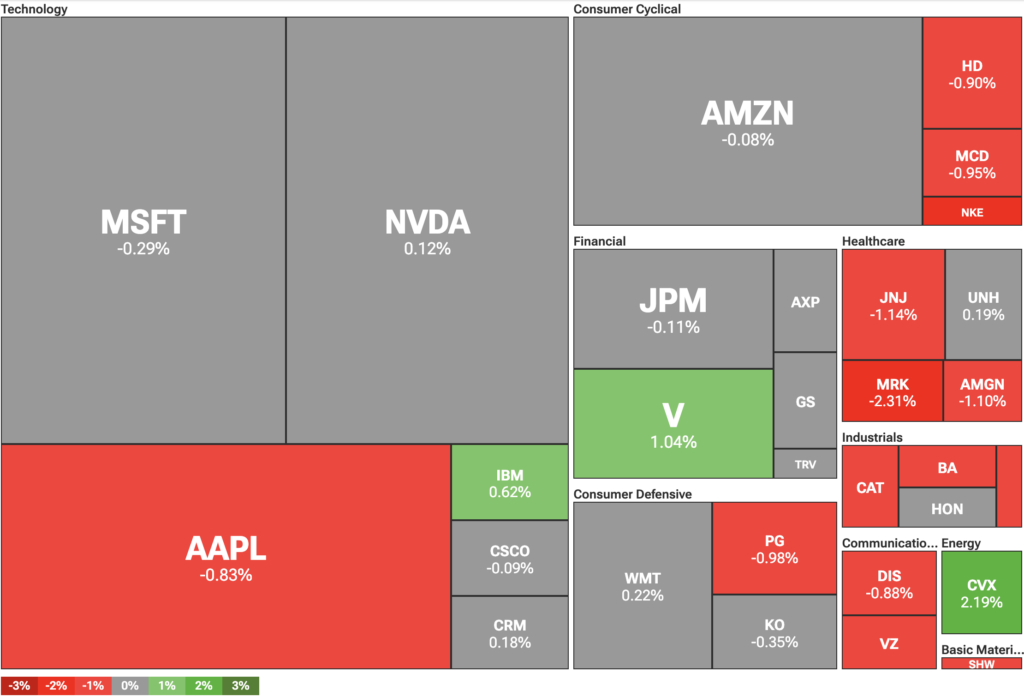U.S. stocks were down as Trump continues to insist that Iran cannot be allowed to have nuclear weapons.
Major U.S. stock indices were down as hopes for a swift resolution to the Israel-Iran conflict continued to fade. On Tuesday, July 17, the Dow Jones fell 130 points, or 0.31%, with healthcare firms leading the declines. At the same time, the S&P 500 dropped 0.44%, while the tech-heavy Nasdaq declined by 0.50%.

The downturn came after U.S. President Donald Trump called for the evacuation of Tehran, Iran’s capital. The move rattled investors, signaling the possibility of a prolonged conflict. Instead of pushing for a ceasefire, Trump has maintained a firm stance on Iran’s nuclear disarmament, a demand which the regime is unlikely to accept.
In response, oil prices spiked 3%, as investors feared that the escalating conflict could threaten the region’s oil production and trade. Notably, Israel has already attacked major Iranian oil facilities, while traders fear that Iran might close the Strait of Hormuz, a vital global oil artery.
Still, some economists suggest that a prolonged conflict could prompt the Federeal Reserve to cut interest rates sooner than expected. Historically, sudden spikes in oil prices are considered transitory and not factored into Fed decisions. However, in the current environment, a sustained rise in energy costs could pose a greater threat to jobs and economic growth.
In the current environment, however, a prolonged rise in oil prices could pose a greater threat to jobs and growth. For this reason, the Fed might feel that it needs to lower interest rates to boost the economy.
RFK Jr. takes aim at Big Pharma ads
The Trump administration is reportedly weighing new restrictions on pharmaceutical advertising. The initiative, led by U.S. Health Secretary Robert F. Kennedy Jr., could disrupt the nearly $10 billion that pharmaceutical companies spend on ads annually.
RFK Jr. plans to require more disclosures in drug advertisements. Industry insiders say the changes could lengthen ad time significantly, potentially making commercials prohibitively expensive to produce and air. Still, the proposal aligns with the administration’s broader Make America Healthy Again campaign and RFK Jr.’s longstanding skepticism toward Big Pharma.
The health secretary’s efforts against ultra-processed foods may be bearing some fruit. Specifically, major food producer Kraft Heinz plans to remove artificial food coloring from major brands. Kool-Aid and Jell-O, among other products, will be free of artificial coloring by 2027.
